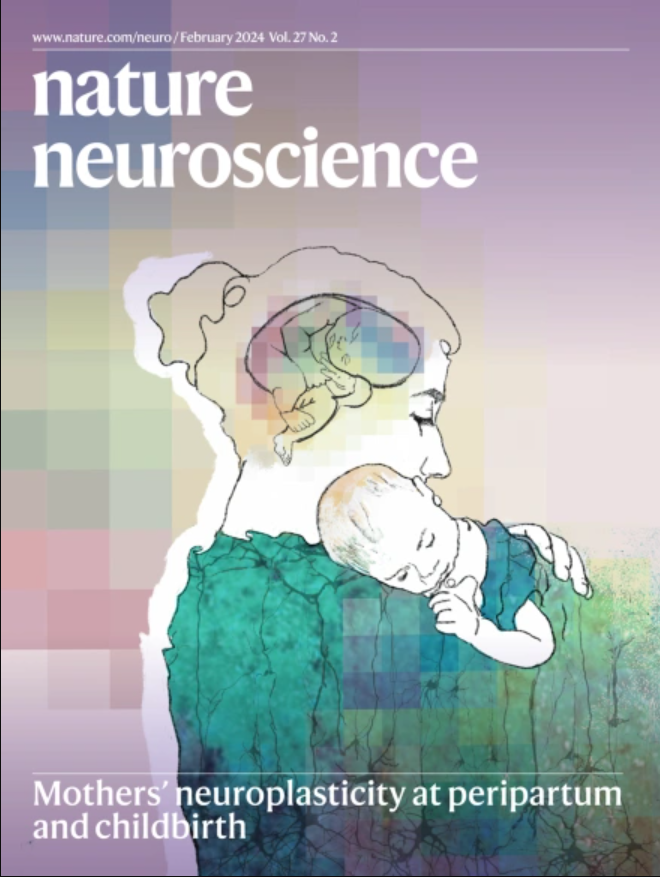在阿尔茨海默病中,当小胶质细胞不足时,单核细胞来源的巨噬细胞起到增强作用
IF 21.2
1区 医学
Q1 NEUROSCIENCES
引用次数: 0
摘要
中枢神经系统(CNS)拥有自己的常驻先天性免疫细胞--小胶质细胞。小胶质细胞约占中枢神经系统实质内细胞总数的 10%,充当 "哨兵",感知并缓解任何偏离平衡状态的情况。然而,在严重的急性或慢性神经损伤或疾病情况下,小胶质细胞无法控制损伤,需要单核细胞衍生巨噬细胞(MDMs)的修复活动。小胶质细胞在这种情况下失效可能是由于它们长期暴露于敌意刺激,导致衰竭或衰老。在这里,我们描述了小胶质细胞失效的条件,主要侧重于阿尔茨海默病的背景,并阐明了 MDMs 的功能。我们讨论了 MDMs 是否以及如何与小胶质细胞进行交叉对话,为什么它们的招募往往不足,以及以控制良好的方式增强它们在大脑中的归巢的潜在方法。本文章由计算机程序翻译,如有差异,请以英文原文为准。


Monocyte-derived macrophages act as reinforcements when microglia fall short in Alzheimer’s disease
The central nervous system (CNS) is endowed with its own resident innate immune cells, the microglia. They constitute approximately 10% of the total cells within the CNS parenchyma and act as ‘sentinels’, sensing and mitigating any deviation from homeostasis. Nevertheless, under severe acute or chronic neurological injury or disease, microglia are unable to contain the damage, and the reparative activity of monocyte-derived macrophages (MDMs) is required. The failure of the microglia under such conditions could be an outcome of their prolonged exposure to hostile stimuli, leading to their exhaustion or senescence. Here, we describe the conditions under which the microglia fall short, focusing mainly on the context of Alzheimer’s disease, and shed light on the functions performed by MDMs. We discuss whether and how MDMs engage in cross-talk with the microglia, why their recruitment is often inadequate, and potential ways to augment their homing to the brain in a well-controlled manner. This article discusses a puzzling issue in brain pathology: why brain-resident microglia are insufficient for protection, and why myeloid cells are needed from the periphery. Several strategies are proposed to enhance their recruitment to the brain.
求助全文
通过发布文献求助,成功后即可免费获取论文全文。
去求助
来源期刊

Nature neuroscience
医学-神经科学
CiteScore
38.60
自引率
1.20%
发文量
212
审稿时长
1 months
期刊介绍:
Nature Neuroscience, a multidisciplinary journal, publishes papers of the utmost quality and significance across all realms of neuroscience. The editors welcome contributions spanning molecular, cellular, systems, and cognitive neuroscience, along with psychophysics, computational modeling, and nervous system disorders. While no area is off-limits, studies offering fundamental insights into nervous system function receive priority.
The journal offers high visibility to both readers and authors, fostering interdisciplinary communication and accessibility to a broad audience. It maintains high standards of copy editing and production, rigorous peer review, rapid publication, and operates independently from academic societies and other vested interests.
In addition to primary research, Nature Neuroscience features news and views, reviews, editorials, commentaries, perspectives, book reviews, and correspondence, aiming to serve as the voice of the global neuroscience community.
 求助内容:
求助内容: 应助结果提醒方式:
应助结果提醒方式:


